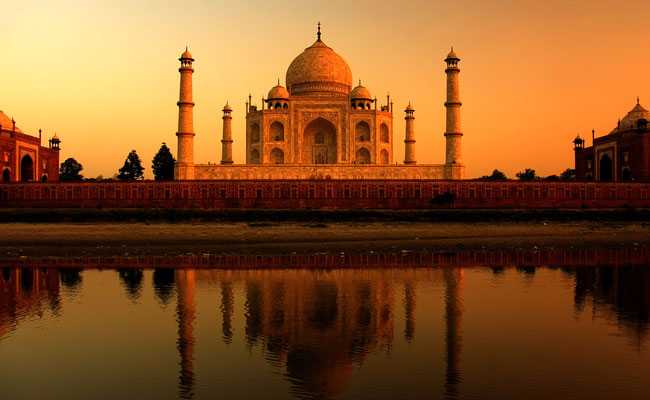
The Uttar Pradesh government celebrated 'UP Diwas', the state's foundation day for the first time today. In 1950, erstwhile United Provinces was rechristened Uttar Pradesh, but the story of how it got its name is less-known. Governor Ram Naik floated the proposal to mark UP Divas on the lines of Maharashtra Day so that people know the history and culture of their state. "I am sure all north Indians living abroad will begin celebrating Uttar Pradesh Divas as they celebrate Ram Navmi and Janmasthmi," Mr Naik had said.
UP Divas: How Uttar Pradesh Got Its Name And Its History:
The state was called the Brahmrishi Desh or the Madhya Desh in the vedic period. During the Mughal period, its territory was divided under governors.
History says Uttar Pradesh came into existence on January 24, 1950, when the governor-general of India passed United Provinces (Alteration of Name) Order 1950, renaming United Provinces as Uttar Pradesh. The governor general's order was published in the Uttar Pradesh Gazette (Extraordinary) dated January 24, 1950. Uttar Pradesh has witnessed various changes over the years. It reached its present size after the hill state of Uttarakhand was carved out of the undivided Uttar Pradesh on November 9, 2000.
According to the books on UP and documents at the archives, the state was under the Bengal Presidency till 1834. But then the need to form a fourth presidency was felt, the three being Bengal, Bombay and Madras. The fourth presidency was known as the Agra Presidency that was headed by a governor.
In 1836, this presidency came under the lieutenant governor. In January 1858, Lord Canning proceeded to Allahabad and formed the North Western Province, excluding the Delhi division. The seat of power was thus shifted from Agra to Allahabad. This was followed by the transfer of the high court from Agra to Allahabad in 1868.
In 1856, Awadh was placed under the chief commissioner. The districts were later merged with North Western Province and came to be know as 'North Western Provinces and Oudh' in 1877. The entire province in 1902 came to be known as the 'United Provinces of Agra and Oudh'.
The first election was held in 1920 for legislative council, which was constituted in Lucknow in 1921. Since the governor, ministers and the secretaries to governor had to be in Lucknow, the then governor Sir Harcount Butler changed his headquarters from Allahabad to Lucknow.
By 1935, the entire office was shifted to Lucknow. Lucknow became the capital of the province, the name of which was again changed to United Province in April 1937. The name was changed once again to Uttar Pradesh in January, 1950, under the Constitution of India.
Since 1902, the province was known as the United Provinces of Agra and Oudh; which in 1937 was shortened to United Province or UP. Within days of Independence, the UP legislature began debating a "suitable name". Nearly 20 names emerged but consensus eluded for long. In October 1949, the matter could not be postponed further as drafting of the new Constitution was nearing completion and had to include the names of the provinces. The matter was placed before the Provincial Congress Committee that met at Banaras in November 1949. An overwhelming majority of 106 members supported a motion in favour or 'Aryavarta' while 'Hind' received 22 votes.
Prominent Congress leader GB Pant conveyed the decision to the Constituent Assembly that shot it down. Central Province-Berar member RK Sidhwa feared that United Provinces was anxious to monopolise the name of India. He bluntly charged UP with looking upon itself as the "supermost province of India".
Finally, then Law Minister Dr BR Ambedkar moved a Bill empowering the Governor-General to alter the names of provinces to the Union. Mr Pant promised to refrain from suggesting pompous names like 'Aryavarta'. Congress members from Uttar Pradesh in the Constituent Assembly were asked to work out a compromise on "Uttar Pradesh", and the rest, as they say, is history.

